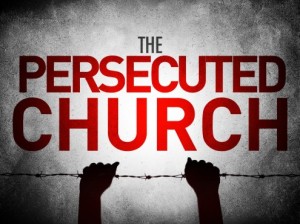
By editor - 05 November, 2014
 Courtesy: Independent Catholic News http://www.indcatholicnews.com
Courtesy: Independent Catholic News http://www.indcatholicnews.com
Britain’s Prince Charles has highlighted the need for action to uphold religious freedom following the launch of the ‘Religious Freedom in the World Report’ (2014) by the Aid to the Church in Need (ACN).
The Prince, who has on a number of occasions highlighted the plight of Christians in the Middle East, gave a video address to parliamentarians and faith leaders on Tuesday in the British House of Lords.
The Religious Freedom in the World Report is a comprehensive study of the state of religious freedom for people of all faiths around the globe.
The report is expected to signal to governments that violations of religious freedom rights will not be tolerated.
Compiled by journalists, academics and commentators, the report reveals worrying concerns for people of faith in 116 of the world’s 196 countries (nearly 60% of all countries).
Assessing all religious groups and covering events from autumn 2012 to summer 2014, the report concludes that where the situation regarding religious liberty has changed, it has almost always changed for the worse.
In the 196 countries analysed, deteriorating conditions are noted in 55 countries (or 28%).
Only six of the 196 countries – Iran, United Arab Emirates, Cuba, Qatar, Zimbabwe and Taiwan – have been classified as improved. Yet, even within these six, four are categorised as experiencing “high” or “medium” persecution.
A 32-page executive summary of the full report, published in most major European languages, categorises 20 countries as having a “high” degree of religious intolerance or active persecution.
Of these, 14 experience religious persecution linked to extremist Islam. These are Afghanistan, Central African Republic, Egypt, Iran, Iraq, Libya, Maldives, Nigeria, Pakistan, Saudi Arabia, Somalia, Sudan, Syria and Yemen.
In the remaining six countries, religious persecution is mainly linked to authoritarian regimes. These are Burma (Myanmar), China, Eritrea, North Korea, Azerbaijan and Uzbekistan.
John Pontifex, London-based Editor-in-Chief of the report, said, “In the period under review, global religious freedom entered a period of serious decline and the report confirms media perceptions of a rising tide of persecution aimed at marginalised religious communities.

The Prince of Wales addresses Coptic, Syrian Orthodox, Christian communities present in the Middle East.
“The report we have produced indicates that many of those in authority – governments and religious leaders – have continually failed to stand up for religious freedom and hence it has become an orphaned right.”
“Serial human rights abuses – from the threat of massacres in the Middle East and discrimination in the workplace in Western countries – are the direct result of religious freedom violations.”
“As a Catholic organisation, it is our duty not simply to stand up for Christians suffering religious freedom violations, but for people of all faiths.”
The report, which covers the period October 2012 to June 2014, is the latest in a series, published every two years by Aid to the Church in Need, whose international headquarters are in Königstein, near Frankfurt, Germany.
In the report’s foreword, Dr Paul Bhatti, brother of Shahbaz, the Federal Minister for Minorities in Pakistan who was murdered in 2011, writes: “Religious freedom is by its nature a right for all, equally shared, and that is why I commend Aid to the Church in Need’s ‘International Religious Freedom in the World’ report for looking at and assessing the situation over a broad cross-section of faith groups in countries throughout the world.”
“In doing so, this report challenges people to think afresh about this fundamental right, which is central to a free, fair and flourishing society,” he writes.
He concludes, “It is the most critical need of the moment in a divided world where, in some parts there is a religious revival and in others a trend towards religious indifference and atheism.”
The report notes other trends, including:
– The rise of religious intolerance and “aggressive atheism” in Western Europe.
– Large population displacements due to religious persecution, especially in the Middle East.
– A growing “religious illiteracy” among Western policy makes, leading to misunderstandings in foreign policy areas.
– A worrying growth of anti-Semitic incidents in Europe
– On the positive side, the report found a number of examples of religious co-operation; however these were often the result of local initiatives rather than progress at the level of national governments.
Peter Sefton-Williams, Chairman of the report’s Editorial Committee, said in his summary of the main findings, “The clear lesson from this research is that the urgent call to reverse the violence and oppression directed towards religious minorities must come, first and foremost, from within religious communities themselves.”
He concluded: “The necessity for all religious leaders to use their pulpits and the media to loudly proclaim their opposition to religiously-inspired violence, and to re-affirm their support for religious tolerance, is becoming – in the present climate – ever more urgent.”
The entire report and the Prince’s speech are available online at www.religion-freedom-report.org